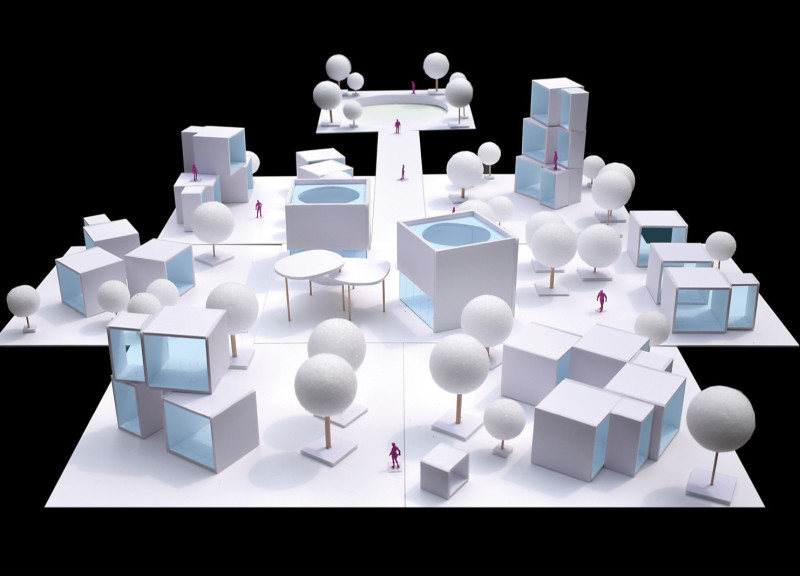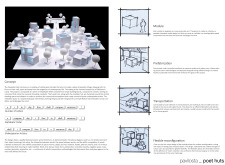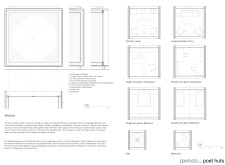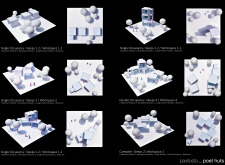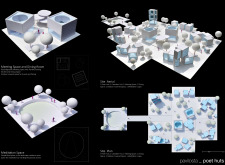5 key facts about this project
The Pavalosta Poet Commune is located in the coastal city of Pavilosta, Latvia, where it acts as a retreat space specifically designed for poets. The retreat provides a calm setting that encourages creativity and personal exploration. The design includes individual living units alongside communal areas, enabling both solitude for artistic work and opportunities for social interaction.
Architecture Concept
The layout consists of clusters of poet huts surrounding a central meeting space and cafeteria. This design encourages communication and collaboration among residents while also offering private areas for focused writing and reflection. The inclusion of a meditation area enhances the experience, prompting users to engage with their thoughts and surroundings. The architecture reflects an understanding of the needs of creative individuals.
Materials and Sustainability
Cross-laminated timber (CLT) and steel braces are used in the construction, offering strength and visual appeal. These materials also contribute to sustainability goals. Continuous insulation is placed within the CLT structure, which helps to maintain a comfortable indoor climate. The choice of materials indicates a focus on environmentally friendly practices, supporting the ethos of the artistic community.
Modularity and Flexibility
Each hut is designed as a modular unit that can be replicated or adjusted based on the needs of residents. This flexibility allows for various configurations for single and double occupancy, including areas for work, living, and cooking. Such adaptability helps cater to different creative processes and facilitates collaboration among poets.
Community Engagement
The central meeting space is equipped with flexible seating and dining options to support both group gatherings and individual use. This design makes it easier for residents to come together, share ideas, and enjoy communal meals. Open areas foster a sense of connection, which is important for encouraging creativity within the retreat.
Large windows bring in natural light, connecting the huts to the surrounding landscape. This design element enhances the sense of calm and inspiration, enriching the overall experience for artists.


